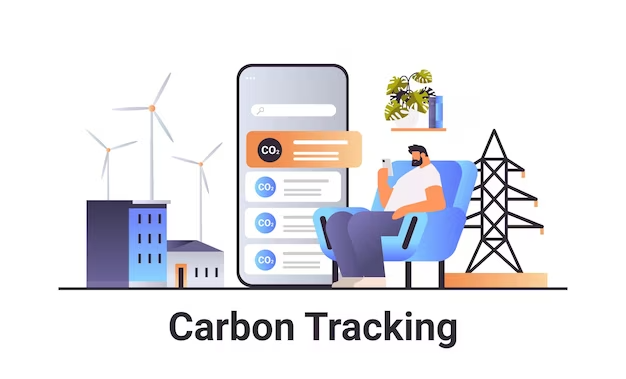
27 Sep, 2023
EcoVadis Launches Innovative Solution to Track Product Carbon Emissions
In today's world, businesses are increasingly recognizing the importance of sustainability and taking steps to reduce their carbon footprint. EcoVadis, a leading provider of business sustainability ratings, has recently launched an innovative solution to help companies track and manage their product-level greenhouse gas emissions. This new feature, known as the EcoVadis Product Carbon Footprint (PCF) Data Exchange, aims to address a key challenge faced by many companies in their carbon reduction strategies.
The Challenge of Emissions Reporting
One of the major barriers faced by companies in reducing their carbon emissions is the lack of precise data on the portion of emissions attributable to their purchases. While many suppliers report their overall carbon footprint, buyers often lack the specific information needed to determine the emissions associated with the products and services they purchase. This makes it difficult for companies to accurately measure and manage their carbon impact.
The EcoVadis Solution
The EcoVadis PCF Data Exchange is designed to bridge this gap by enabling companies to track product-level greenhouse gas emissions across their supply chain. This solution utilizes the Partnership for Carbon Transparency's (PACT) standards-based Pathfinder Framework and allows organizations to request and collect product carbon footprint data from their suppliers. By working collaboratively with suppliers, organizations can identify emissions reduction opportunities and compare product carbon footprint data based on global standards.
Julia Salant, General Manager, Carbon Solution at EcoVadis, highlights the significance of product carbon footprint data, stating, "It's the next step for organizations to accelerate their carbon maturity journey through precise measurement and management of emissions, helping organizations make a positive impact on the planet."
How It Works
The EcoVadis PCF Data Exchange operates within the Carbon Action Module, which is part of the larger EcoVadis sustainability ratings platform. The module enables organizations to collect, analyze, and report on their carbon emissions data. With the addition of the PCF Data Exchange, companies can now request product carbon footprint information from their suppliers and collaborate on emissions reduction initiatives.
The process begins with organizations sending requests to their suppliers through the EcoVadis platform. Suppliers then provide the necessary product carbon footprint data, which is validated and verified by EcoVadis. This data can be used to identify areas for emissions reduction and drive collaborative efforts towards sustainability goals.
Benefits of the EcoVadis PCF Data Exchange
The launch of the EcoVadis PCF Data Exchange brings several benefits to companies seeking to improve their sustainability performance:
- Precise Measurement: With access to product-level greenhouse gas emissions data, organizations can gain a more accurate understanding of their carbon footprint and identify areas for improvement.
- Collaborative Approach: The PCF Data Exchange facilitates collaboration between buyers and suppliers, enabling them to work together towards emissions reduction goals.
- Global Standards: The solution ensures that product carbon footprint data is measured and compared based on globally recognized standards, promoting consistency and transparency.
- Data-Driven Decision Making: By having access to detailed emissions data, organizations can make informed decisions about their supply chain and procurement practices to drive sustainability improvements.
Conclusion
The EcoVadis Product Carbon Footprint (PCF) Data Exchange is a groundbreaking solution that empowers companies to accurately track and manage their product-level greenhouse gas emissions. By addressing the challenge of emissions reporting, EcoVadis is helping businesses take significant steps towards achieving their sustainability goals. With precise measurement, collaborative efforts, and adherence to global standards, organizations can make a positive impact on the planet and contribute to a more sustainable future.